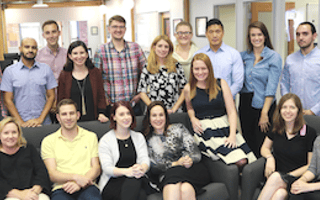For CEOs, there’s no shortage of things that demand time and attention, leading to tough decisions about where and when to delegate.
For many leaders, working hands-on with entry-level employees is the first thing to go. But some CEOs make a point of not losing sight of the front line. We spoke with seven of them to learn more about how they find the time, and what insights they garner from their junior team members.
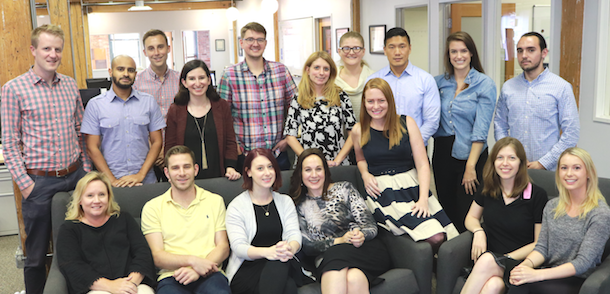
By streamlining the payment process for event-related services, Eved helps event planners spend more time planning awesome happenings. CEO Talia Mashiach said weekly one-on-ones are an important part of her schedule, because they allow her to share details about how the company is doing, as well as to connect with team members about their work and their personal lives.
How do you make time to stay close with your team?
I keep a weekly team meeting and weekly one-on-ones to ensure I touch-base and provide a forum for any kind of conversation. The dedicated time helps me keep information transparent and provides the opportunity to connect about business performance, how people are feeling and what they’re up to, in and outside of the office.
What is the most important thing you’ve learned from a junior team member?
I received some great feedback about team organization in order to increase productivity and team communication, and we’ve made great changes in result. Another team member wanted a better way to celebrate, so we got a gong and ring it whenever there is a key accomplishment!
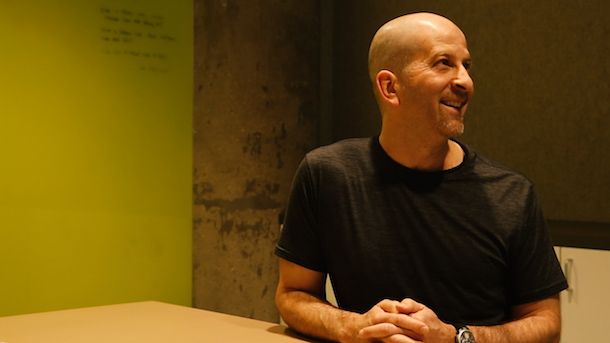
A brokerage powered by the people behind tastytrade, tastyworks provides trading technology that lets consumers trade stocks, options, exchange-traded funds and futures. To ensure that he stays in the loop on what’s going on inside the company, CEO Scott Sheridan sits on the trading desk alongside the rest of his team.
How do you make time to stay close with your team?
I have a very simple philosophy, and that is to lead by example. I don’t have a private office, as I prefer to sit on the trade desk right in the middle of the action. This allows me to interact with our customer support team and our customers in the same way that everybody else does.
What is the most important thing you’ve learned from a junior team member?
Over the years, the most important thing that I have learned from my team is that if I challenge them by empowering them to make decisions that are above what they think they are capable of doing, they will always rise to the occasion. This creates a much happier and more productive employee, which in turn creates a better business.
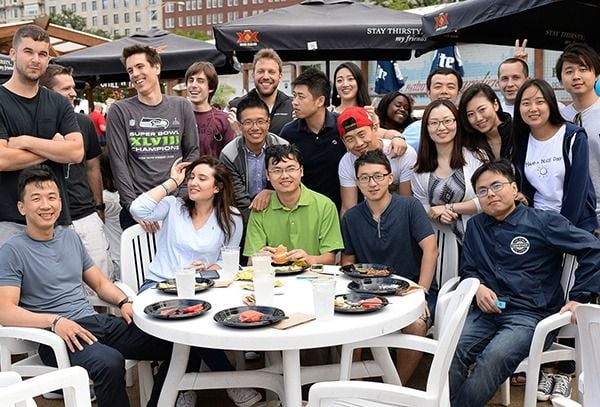
One of Chicago’s fastest-growing cloud companies, SMS Assist reached a $1 billion valuation last summer. With that kind of growth, it’s important to keep lines of communication as clear and open as possible, which is why CEO Taylor Rhodes spends a significant amount of his time meeting with employees at every level of the organization.
How do you make time to stay close with your team?
I’ve made sure we keep our weekly one-to-one meetings. It is tempting to let the “urgent” things that pop up every day push these interactions off the calendar, but I have found that making these times sacred is the best way to stay close with my direct team members. We also carve out time for team offsites, where we take a step back and create space for team health and time to work on bigger picture, longer term things.
Moreover, I spend a significant amount of time “walking the floor” to get a sense for the pulse of the company and learn what the buzz and rumor mill are focused on. This is a good way for me to gain context to inform decisions, test whether our communications are creating clarity and alignment, and make sure our team members get the message that who they are and what they do matters to me.
What is the most important thing you’ve learned from a junior team member?
I get some of my best insights and ideas from walking the floor and doing skip-level one-to-one meetings with team members all over the organization. In my first couple months at SMS Assist, I held one-to-ones with over 75 team members from across the business. I trended the feedback so I could see what was clustering, where the wisdom of the crowd told me we should do something different and where we were missing opportunities.
One of the common themes was that our internal communications about priorities and expectations were not cohesive or consistent, and that some leaders were inadvertently creating confusion and conflict with their communication. This left front-line managers and team members feeling like they were pulled in different directions and unable to execute well. Based on this feedback, we are re-designing a multi-channel communications strategy that starts with clear vision and mission. It is translated into clear priorities and measurements and communicated in multiple formats on a weekly and monthly cadence.
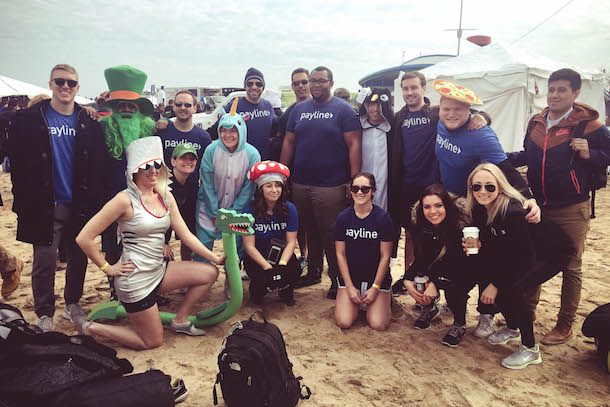
Payline provides payment solutions for mobile, web and brick-and-mortar vendors. CEO Jeff Shea said he’s made it a priority to ensure that other projects don’t get in the way of working closely with members of his team. In his view, team members have to be the biggest priority because, at the end of the day, they’re the ones building the company.
How do you make time to stay close with your team?
Peter Drucker states it best when he says: "The realities of the executive's situation both demand effectiveness from him and make effectiveness exceedingly difficult to achieve."
There is a lot of "stuff" going on, and I need to focus my time and effort to be effective. I am a firm believer that you don't build a business — you build people, and people build the business. I make a conscious effort to always work with my team to serve them, and at the same time empower them to grow and lead our organization. It's simply a priority for me, no different than brushing your teeth in the morning. I do and will always stay close and involved with those who I have chosen to lead our company.
What’s the most important thing you’ve learned from a junior team member?
I learn things every day, and often find wisdom from many of our team members. When every single member of our team is not in alignment with our strategy, that’s when we start to become inefficient. Feedback from the team has strengthened my resolve to follow a methodology and cascade the message down to each department and then to each individual. When we operate in unison, we can accomplish more and create a culture that demonstrates appreciation for everyone.
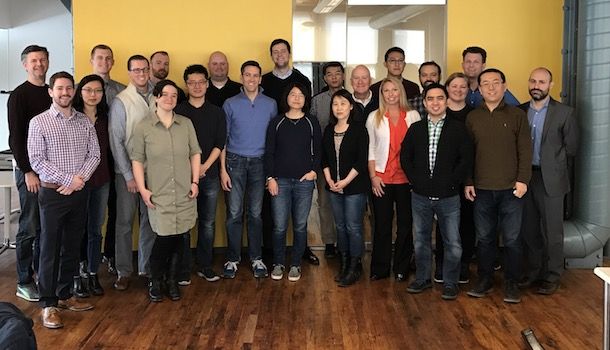
Financial technology provider Supernova Companies wants to bring down the cost of consumer lending through loans secured against the customer’s investment portfolio. The biggest lesson CEO Tom Anderson has learned from his team is to not make things more complicated than they need to be.
How do you make time to stay close with your team?
Through weekly management team meetings and weekly standing office updates. There are three kinds of company culture: active mutual support, open warfare and peaceful coexistence. Active mutual support is best, open warfare is second best and we do not tolerate peaceful coexistence. To make sure that everyone has an opportunity to stay involved, we also always make sure that what’s supposed to be handled in a meeting actually gets done in that meeting.
What is the most important thing you’ve learned from a junior team member?
I learn a lot from my team at the pool table or over food and beer. The most important lesson I’ve learned is that things don’t have to be as complicated as we make them. Our senior team often overthinks or overcomplicates. The perspective of non-senior members has helped us streamline and simplify — and get things to done.

Gesture makes mobile technology that helps charities raise money through auctions and other events. With a team that is distributed across the country, CEO Jim Alvarez doesn’t always have the luxury of dropping by his employees’ desks. But he still makes regular check-ins a priority.
How do you make time to stay close with your team?
My team is spread out around the country, but I make a conscious effort to stay in touch. We also do a lot locally to make sure everyone feels involved with the company beyond their day-to-day work by participating in different team sports and holding group lunches. I always want to know what is going on in people's lives, and I love to celebrate people's birthdays.
What is the most important thing you’ve learned from a junior team member?
This year, my marketing team taught me about the importance of Pinterest and how many of our customers use this social media tool to plan their events. We have since become the most popular event fundraising technology company involved on Pinterest, and we are having a blast coming up with fun and new ideas to share.

NowSecure is a Chicago-based cybersecurity firm whose platform helps companies test the security, compliance and privacy risk of their mobile applications. CEO Alan Snyder said the company’s lean team allows it to move quickly — so long as its members are given the time and resources to build trust.
Why do you make time to stay close with your team?
The most important part of your company is your team, so it’s critical to make the time to get to know and work with everyone. At a company in the early stages, you have to do a lot of things very rapidly, and that requires a high degree of trust. It’s important for everyone to get to know each other on a personal level. And you build those relationships by being in the same room, planning together, working together, eating together, being together.
What is the most important thing you’ve learned from a junior team member?
Some of the most important things I’ve learned from team members is how customers view and understand our products, and how we can better meet customer needs. The people that are building the product and interacting with customers every day have a different perspective that often allows them to better understand a problem and offer solutions more quickly than senior staff.
Images via featured companies.
Got news for us? Let us know with a tip or a tweet @BuiltInChicago

